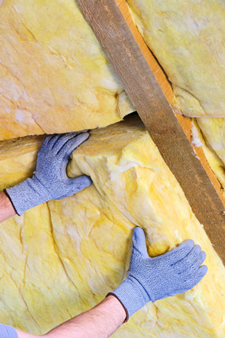In Business Since | License #
In Business Since | License #


The other batt. Rockwool insulation resembles fiberglass batt insulation in appearance, feel, and installation details. It provides slightly greater insulation value, and has superior resistance to mold, moisture damage and combustion.
Rockwool or mineral wool insulation is a close relative of fiberglass insulation. Both materials have a coarse, fibrous appearance, and are available as batts and blankets. The most common type of mineral wool insulation for residential applications is a grey or grey-brown batt that comes in different thicknesses and widths.
Rockwool insulation has good green value because of its recycled content. It’s made primarily from slag wool - a waste byproduct of steel manufacturing.
To discover if your local Dr. Energy Saver can help you with rockwool insulation, contact them by clicking below!
Rockwool insulation has good R-value: between R-4 and R-4.3 per inch. Its resistance to high temperatures is far above that of other insulation types. Mineral wool won't melt below 2000 degrees Fahrenheit. Another good thing about mineral wool is its resistance to mold and moisture damage. It absorbs little or no water and won't compress or fall out of place if it gets wet.
Like fiberglass batts, mineral wool batts can be faced or unfaced. Installers who have experience with fiberglass batt insulation will have no problems installing rockwool insulation. But the availability of this insulation is more limited. Not all insulation contractors have access to rockwool, so you'll need to contact your local Dr. Energy Saver full-service insulation contractor to find out more about this insulation to improve your home's energy efficiency.
Looking for a price? Get a no cost, no obligation free estimate.